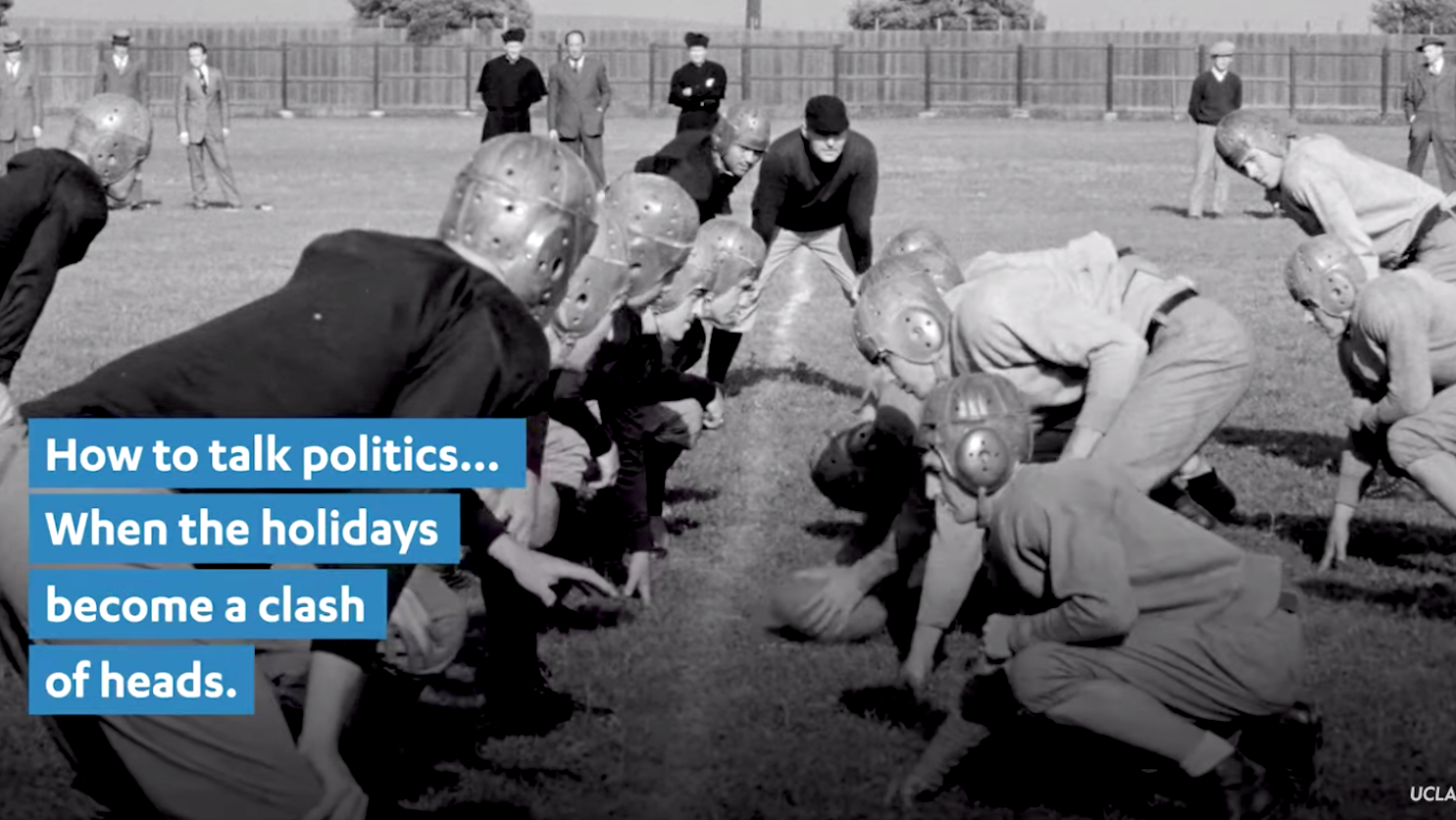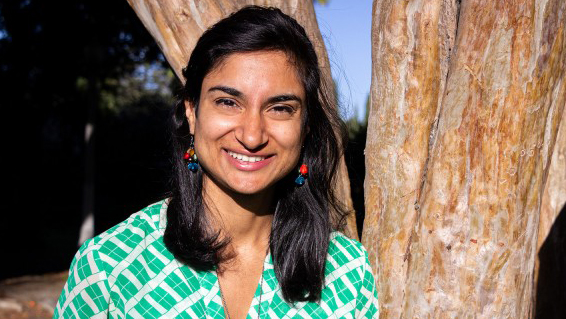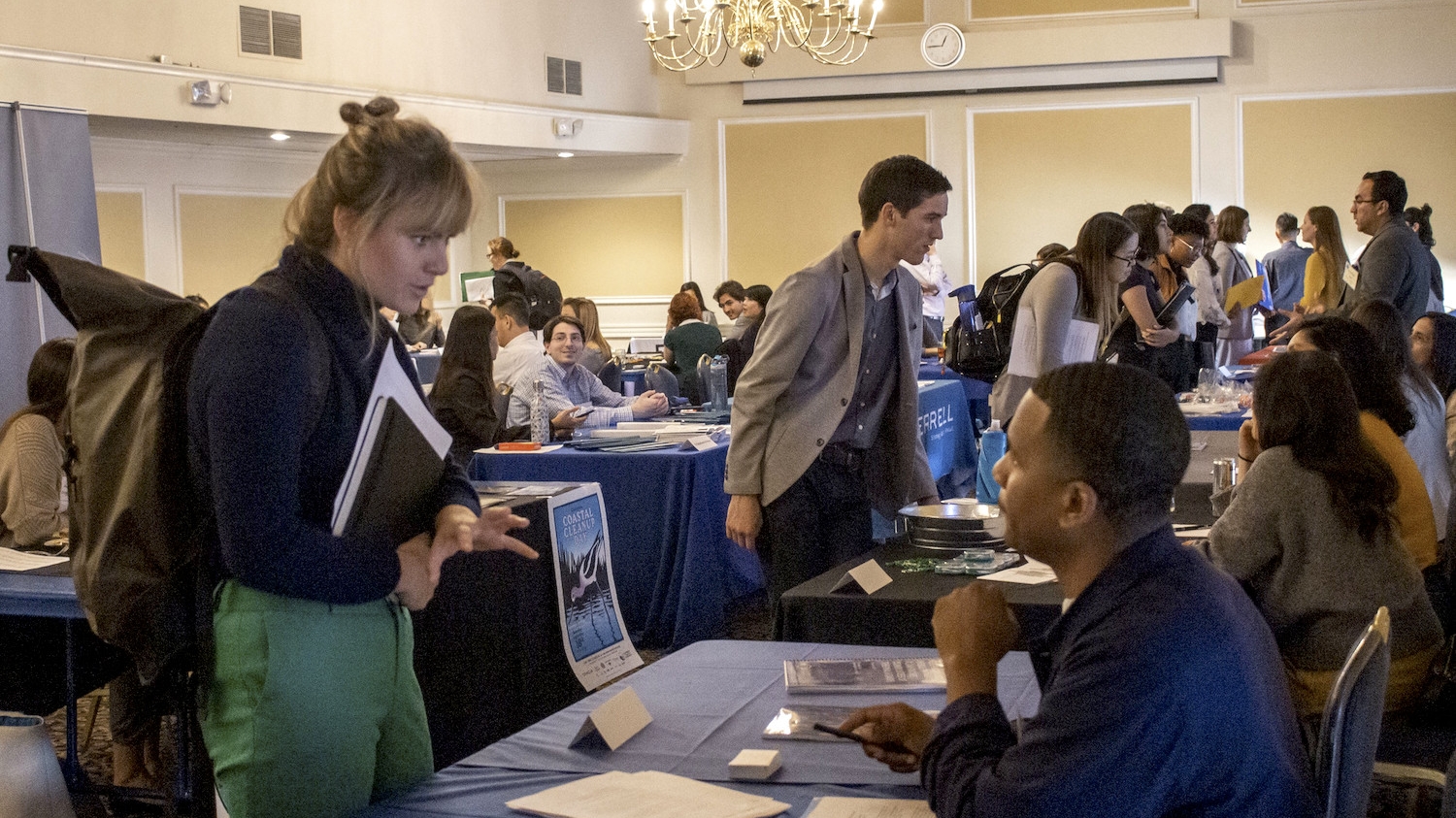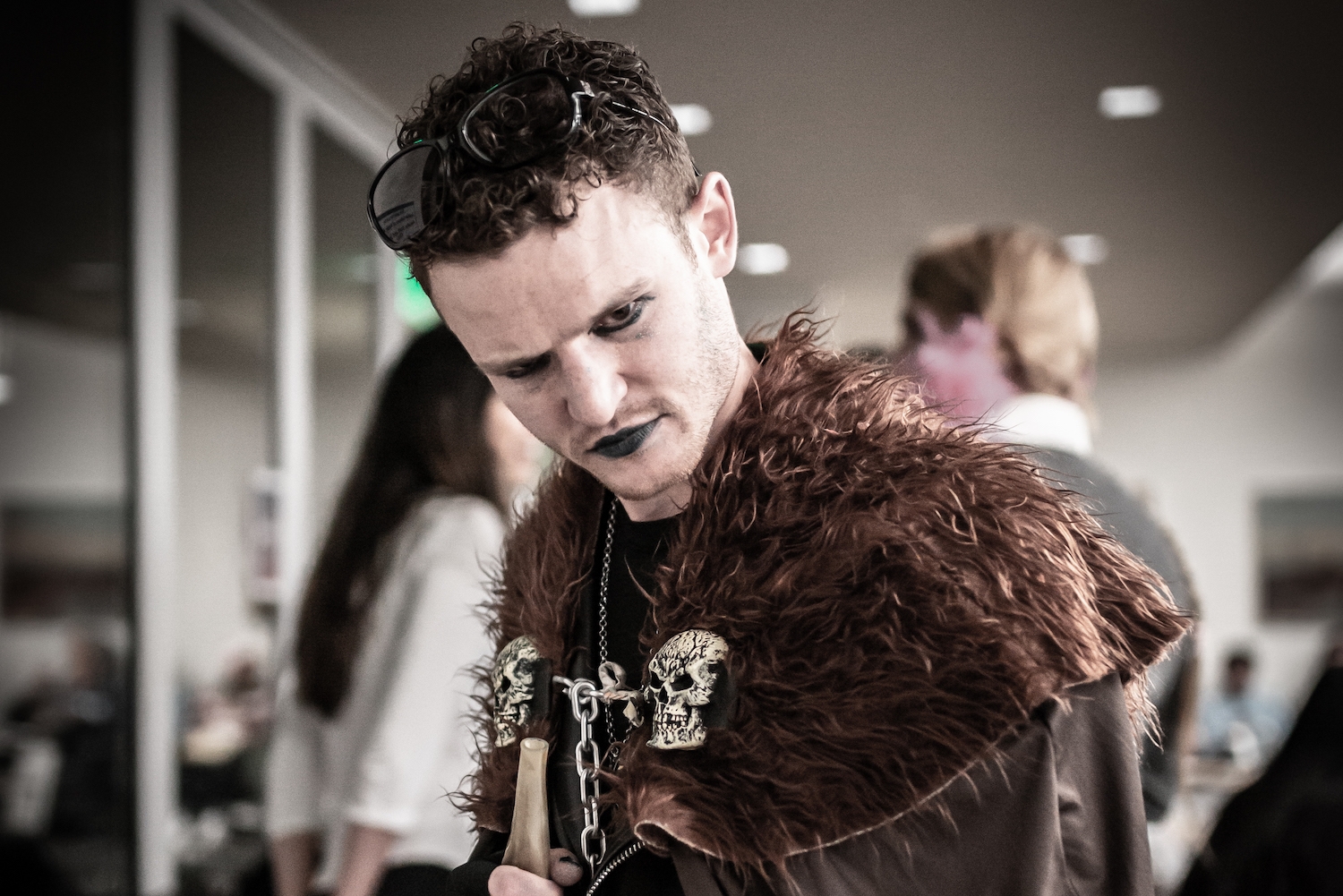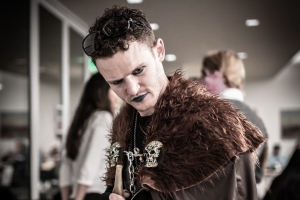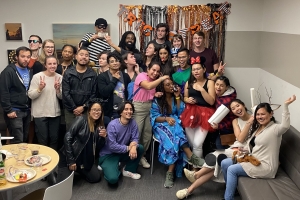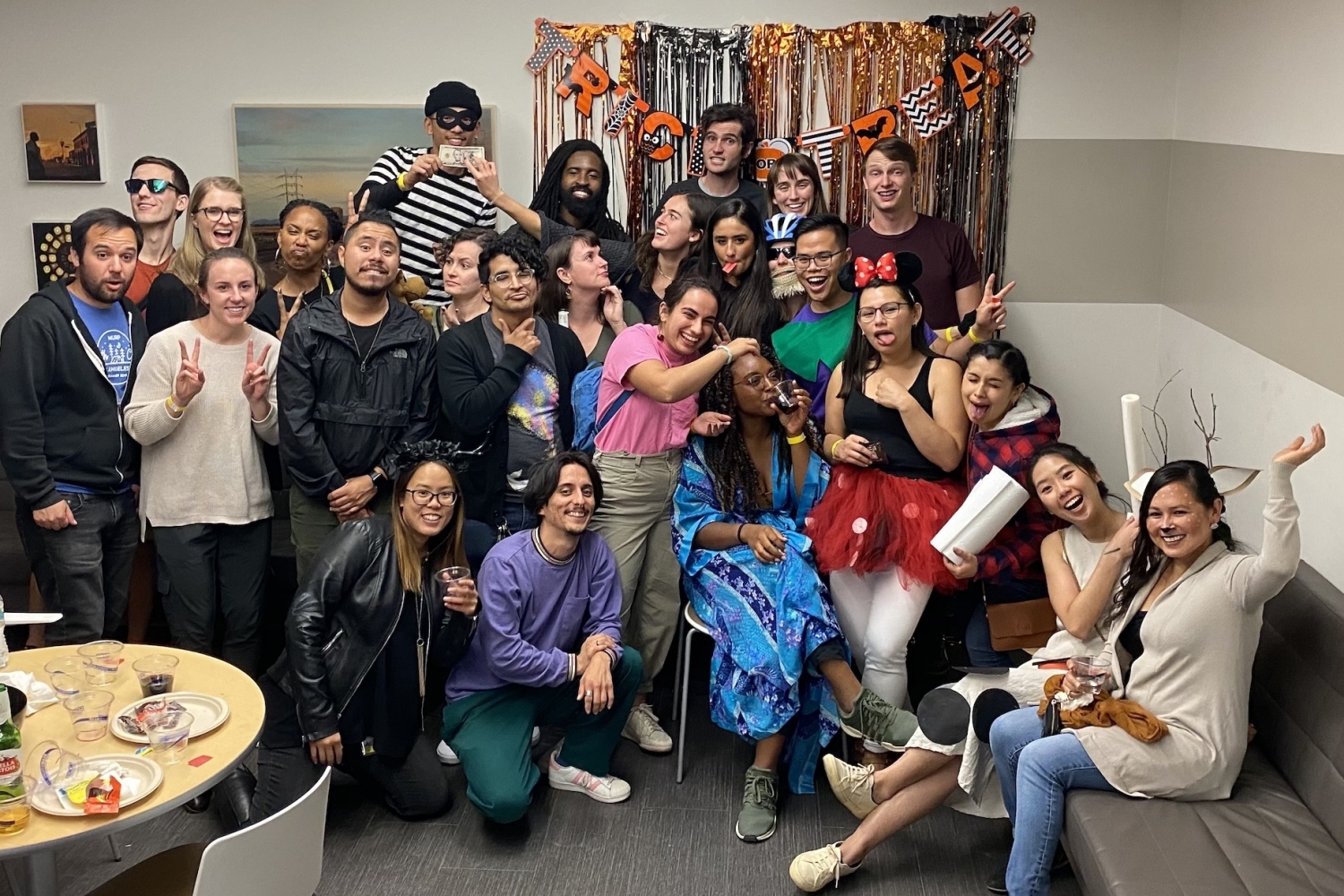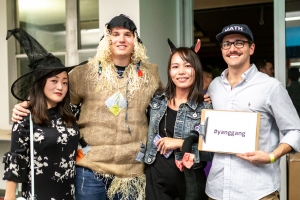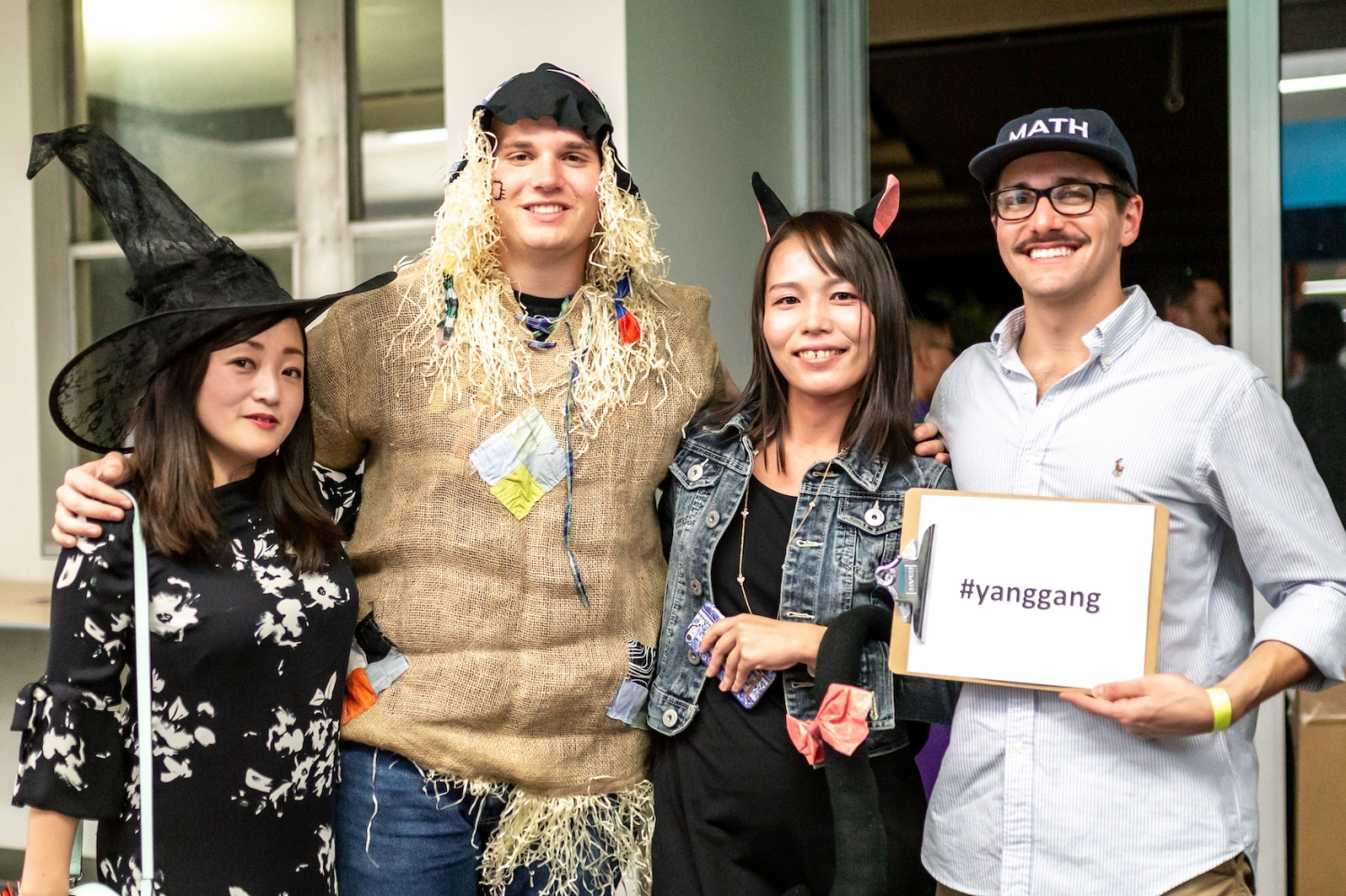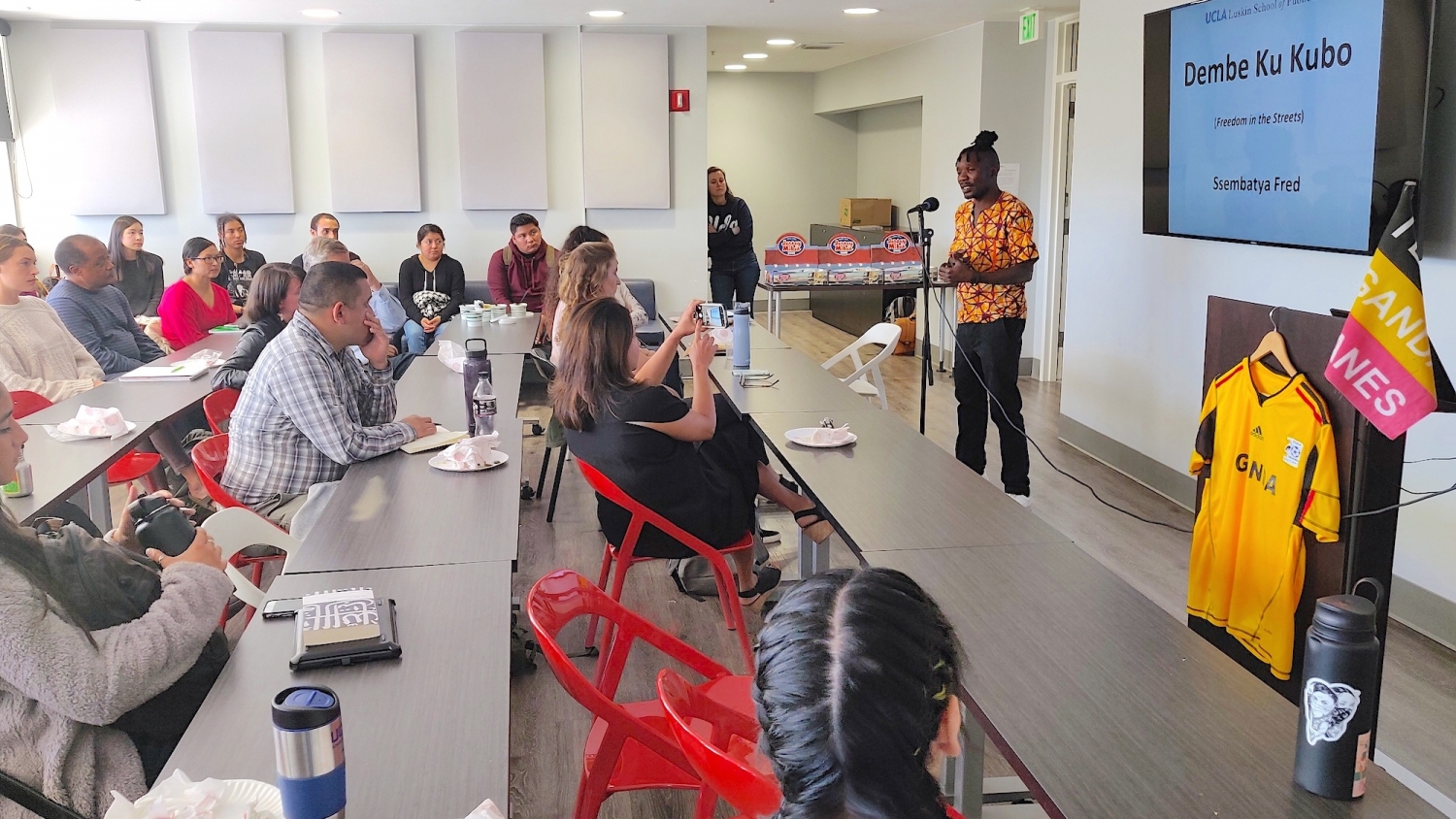
Seeking Freedom in the Streets of Kampala
Global Public Affairs (GPA) at UCLA Luskin hosted an Oct. 31 presentation by Ssembatya Fred, a grassroots activist from Kampala, Uganda, who leads the movement Dembe Ku Kubo (Freedom in the Streets). Fred has been at UCLA this fall working with Amy Ritterbusch, assistant professor of social welfare, on “Violence Against Street-Connected Children in Uganda,” a participatory action research initiative. His fight, he said, is for justice and freedom from violence against youths living under the tyrannical regime of Ugandan President Yoweri Museveni. Fred told of having a nail driven through his foot in his own home when he was in his early teens, an experience that sent him into the life of a freedom fighter. He said he took to the streets for his own safety, as thousands of other young people in Kampala have done, despite the availability of other housing options. Fred returned to Kampala on Nov. 1 to continue the work of keeping young activists safe, primarily from police violence. “Sometimes the most important thing they need is for a safe place to take a long sleep,” he told the GPA gathering. Dembe Ku Kubo was established to provide these necessities and also promote youth involvement in the ongoing political opposition movement. — John Danly
Watch Fred’s new music video Against Violence (in collaboration with Colombian artist Siere).
Making Connections at Fall Internship Fair
Fifty-five employers from the public, private and nonprofit sectors gathered at the UCLA Faculty Center on Nov. 5 to meet Luskin School graduate students seeking real-world experience through internships. More than 30 UCLA Luskin alumni were among the employers who came to the Fall Internship Fair to recruit student interns for positions beginning in January. From the public sector, local municipalities were well-represented, along with agencies at the county, state and federal levels. Planners, consultants and communications experts from the private sector were joined by nonprofits engaged in health, housing, immigration, families and racial equity, among other issues. The Fall Internship Fair focused on the Luskin School’s public policy and urban planning students; social welfare students are placed in yearlong internships at the beginning of the academic year. The fair is one of several programs organized by UCLA Luskin Career Services to prepare graduate students for a competitive job market. In April, a Career Fair and Alumni Networking Event will bring employers together with students from all three graduate programs who are pursuing job opportunities.
View more photos from the Fall Internship Fair on Flickr.
Peterson on ‘Medicare for All’: Balancing Ambition and Statecraft
The November issue of the American Journal of Public Health features an article authored by Public Policy Professor Mark Peterson on the debate surrounding government-run “Medicare for All” healthcare coverage. The article, “Enacting Medicare for All: Balancing Ambition With the Needs of Statecraft,” highlights the leadership and coalition-building skills necessary to enact Medicare for All. Peterson draws on his practical experience as a legislative assistant for health policy in the office of South Dakota Democratic Sen. Tom Daschle during the 1990s as well as extensive research on the politics of health reform. Peterson is currently working on a new manuscript, “American Sisyphus: Health Care and the Challenge of Transformative Policymaking,” that explores public attitudes, interest group dynamics and leadership contexts over the past 100 years. He argues that “2009 to 2010 during the Obama presidency was the most advantageous political setting in U.S. history for comprehensive health care reform” and points to the U.S. Senate as “the biggest stumbling block” of the politics of reform in the United States. Looking to the 2020 presidential election, Peterson highlights the lack of clarity surrounding the topic of Medicare for All, which he explains “means different things to different people.” According to Peterson, the idea of Medicare for All is “motivational poetry for many” but actual implementation requires adaptation and skilled coalition-building. Peterson concludes by recommending that “candidates with the shared commitment to universal coverage avoid forming a circular firing squad, both on the campaign trail and once in office.”

Building Community Through Food, Fun and Creative Costumery
A record 130-plus UCLA Luskin graduate students attended this year’s Luskin Halloween Party, co-hosted by the Association of MPP Students, the MSW Student Alliance and the Urban Planning Student Association. Guests enjoyed fellowship, food and drink, creative costumery and music courtesy of UCLA Luskin’s favorite DJ alumna, Caroline Calderon MURP ’19. The Halloween gathering is typically the most ambitious cross-departmental student government effort of the year at the Luskin School. But it was more than just a night of fun among friends and classmates, said staff liaison Kevin Franco, the admissions and advising officer for Public Policy. “I often get asked by prospective students what makes our program so unique. Aside from the obvious response about our curriculum and resources, I often talk to them about how as a department we are intentional in building community through our student-run organizations,” Franco said. At the Halloween Party, he said, “I saw community come together and build camaraderie, an essential factor in creating a positive graduate experience.” — John Danly
View more photos from the 2019 Luskin Halloween Party.
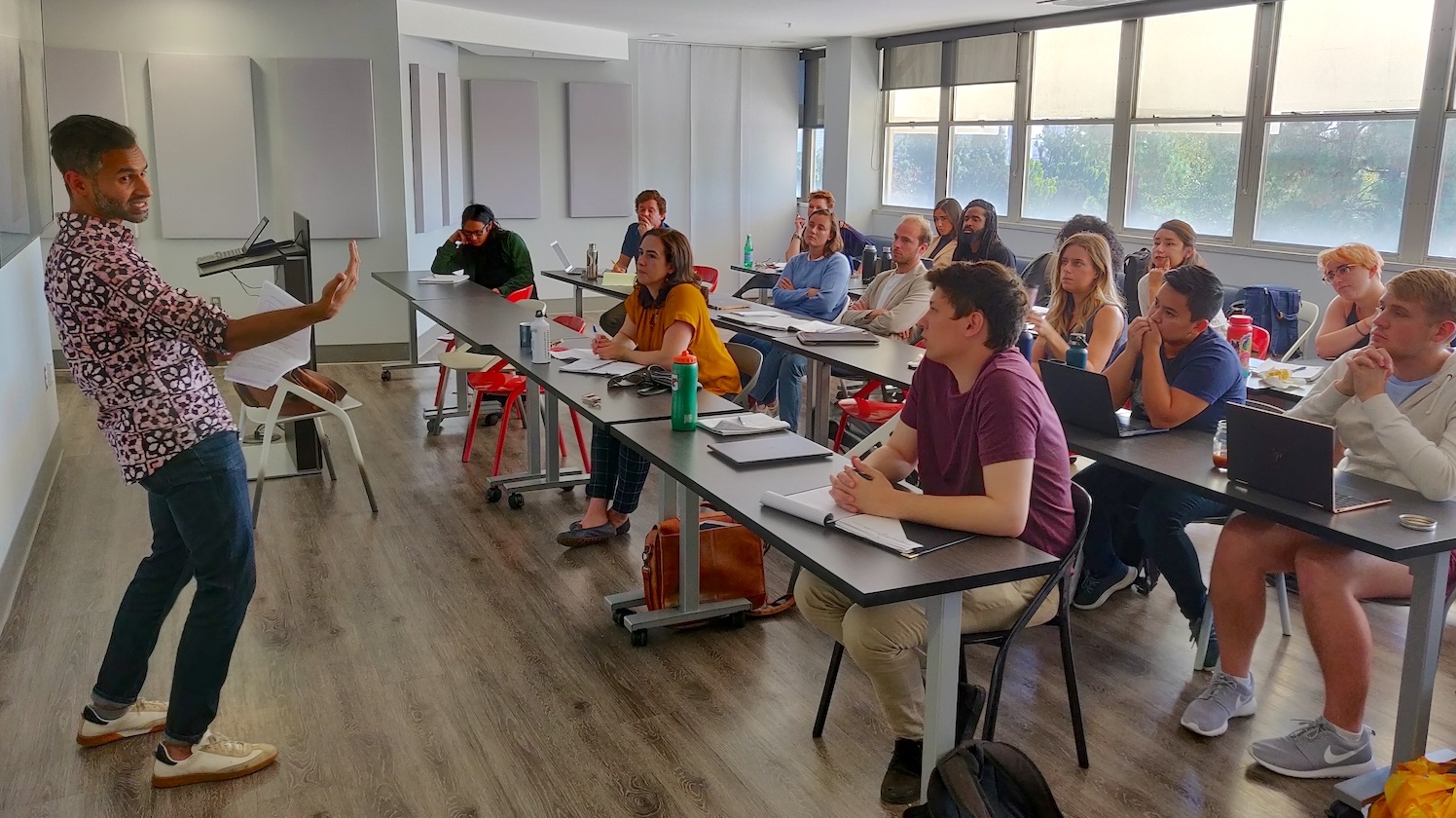
Waging a Battle Against Environmental Injustice
Global Public Affairs (GPA) at UCLA Luskin welcomed Vivek Maru, founder and CEO of the legal advocacy nonprofit Namati, to campus on Oct. 24. In his talk entitled “The Global Struggle for Environmental Justice,” Maru shared three stories of local people — smallholder farmers in Sierra Leone, fisher people on the coast of India and families in an industrial zone of Baltimore — who used the law to stand up to industries polluting their communities. Their work was supported by Namati, which trains and deploys community paralegals around the world to help people understand and exercise their legal rights. Maru said isolated incidents can lead to great change in policies and systems. He stressed the importance of the “legal empowerment cycle,” in which grassroots experiences can trigger systemic change. Namati, founded in 2011, convenes the Global Legal Empowerment Network, more than 2,000 groups and 7,000 individuals from all over the world. Members collaborate on common challenges, such as enforcing environmental law and securing basic rights to healthcare and citizenship. More information about Maru’s work is available in a free e-book, published by Cambridge University Press. — John Danly
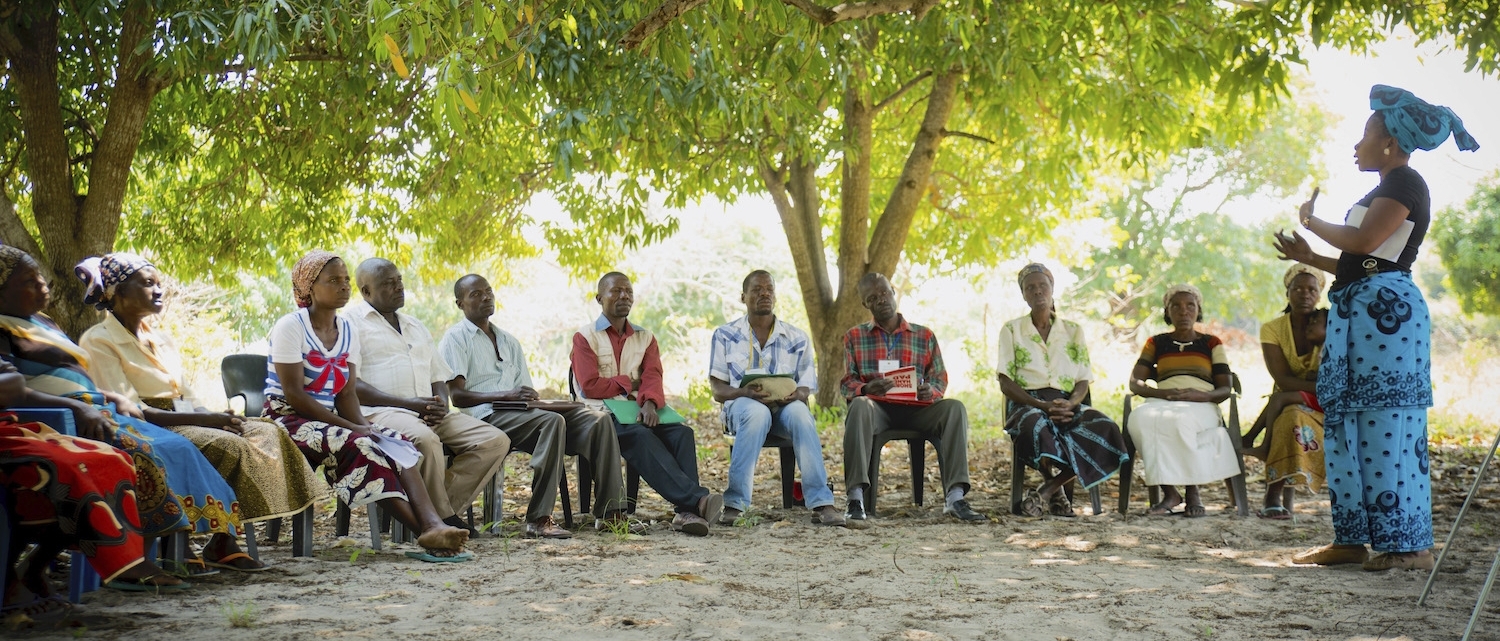
An advocate from Namati speaks with members of a community in Mozambique about their rights. Photo courtesy of Namati
